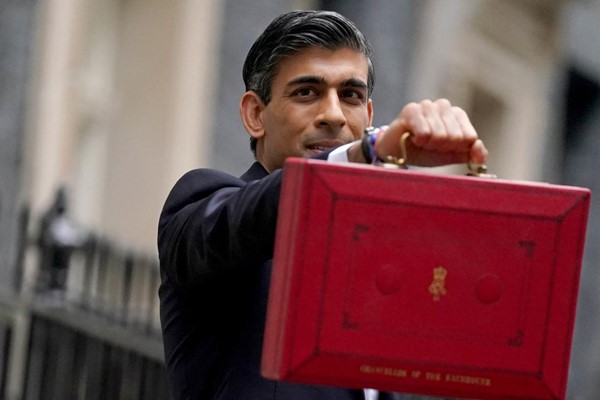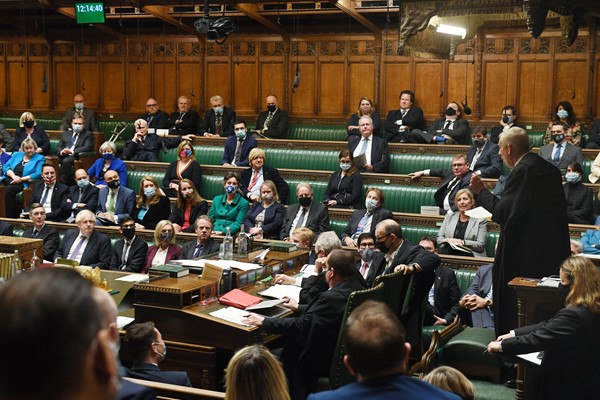Three years ago, my local council received a planning application for six new wind turbines. Wind turbines had sprung up around my village for some time, but these six would be much taller than before. In the past, plans for new wind turbines had been welcomed by some and resisted by others – but this time, public support was almost unanimous. Our community wanted these turbines because they could work more effectively than the small ones – the higher up you go, the windier it gets, the more homes that can be powered. Unfortunately, our local councillors disagreed, deemed it an eyesore and refused permission.
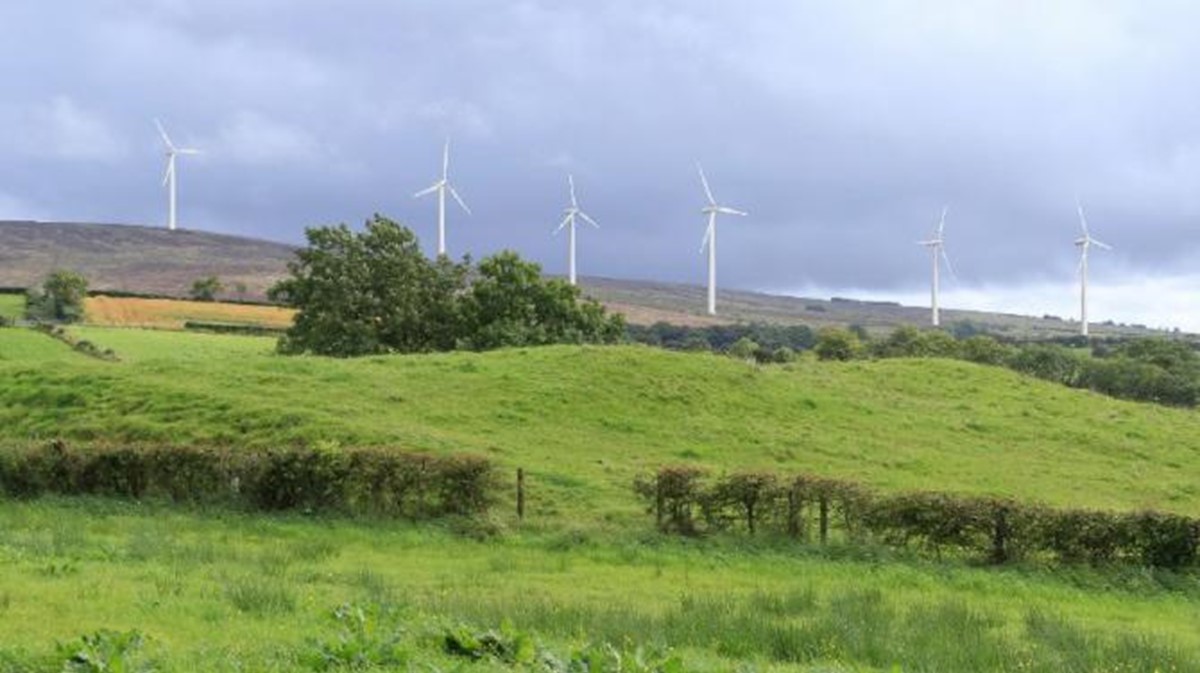
My community’s broad support for renewables, even in our backyards, is indicative of what More in Common finds in communities across the UK. Last week, we commissioned polling asking Britons how the government should tackle rising energy prices. The resounding answer: invest in renewables – something supported by 4 in 5 Britons.
Britons of all ages, politics, socio-economic backgrounds, and regions support investment in renewables strongly because they think it will make Britain less reliant on others for its energy and will help to tackle the rising cost of energy bills. In fact, just 4 per cent of Britons are opposed to such measure. Though support among Gen Z is slightly lower – it is more than likely shaped by an above average tendency among Gen Z in this survey to respond ‘don’t know’, rather than higher levels of opposition to renewables.
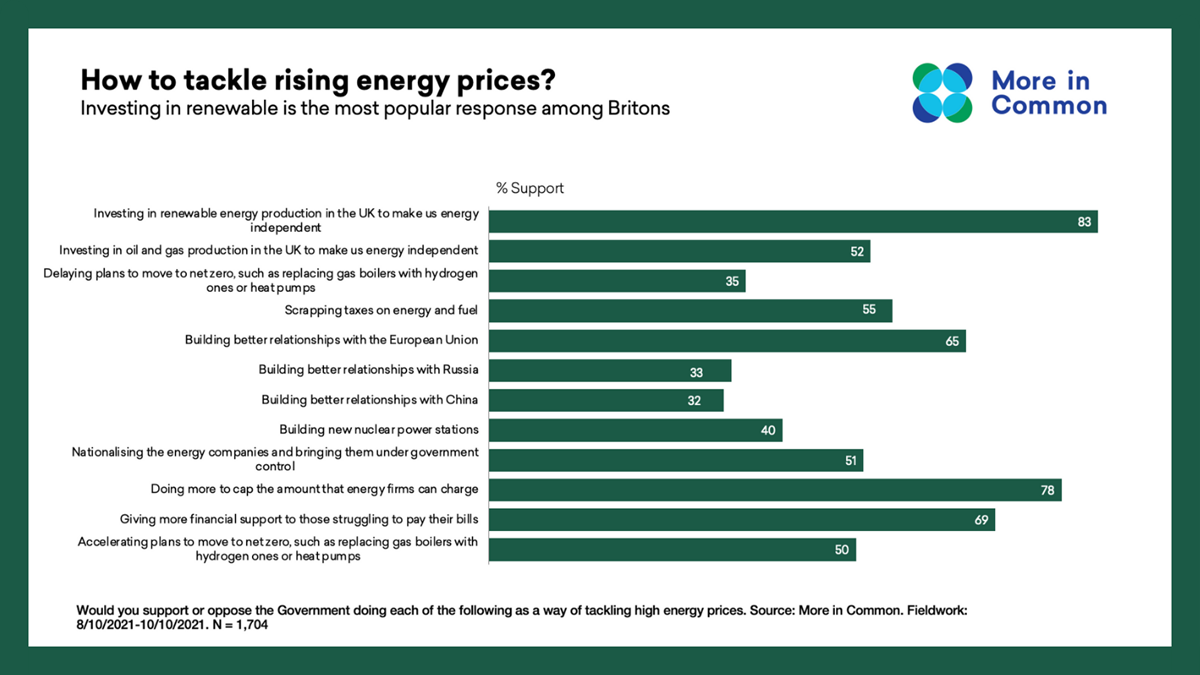
And alongside that strong support for renewables, Britons are twice as likely to want to speed up rather than slow down plans to replace gas boilers. In fact, delaying or slowing down our transition to net zero is about as unpopular as cosying up to Putin or Xi Jinping to help us pay our rising energy bills. Britons clearly recognise that the instability of the global energy market makes the case for cleaner, cheaper and homegrown alternatives to oil and gas all the stronger.
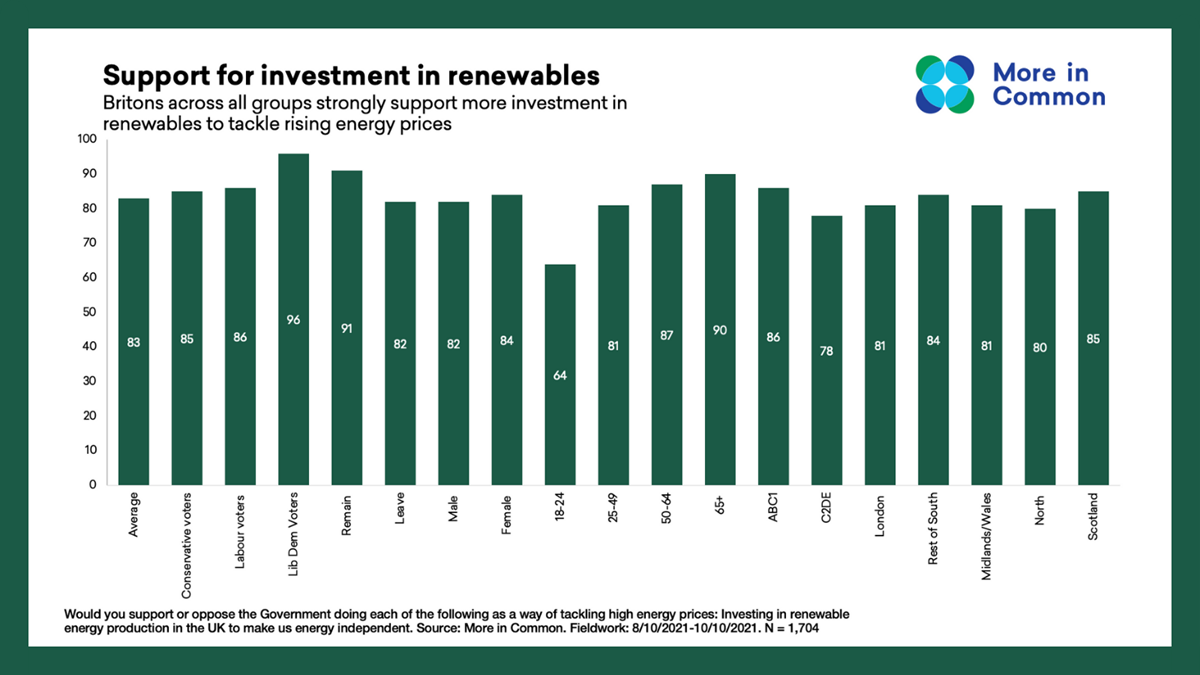
That practical, tangible way of thinking about tackling climate change reflects what we hear in our conversations around the country about renewables. People want more renewables, but they want to know that those renewables will be reliable, dependable and that those with broadest shoulders carry their fair share of the cost of any switch over.
These broad levels of support for renewables, the resistance to delaying the inevitable, and the practical approach Britons take when thinking about the future of energy, is often overlooked in debates about climate, which tend to put the public into imaginary, caricatured positions. Politicians need to be less like those in my local council who ignored and underestimated our community’s support for renewables. Instead, politicians need to focus on how to build on these existing levels of support as a key path to making sure we get transition done.

